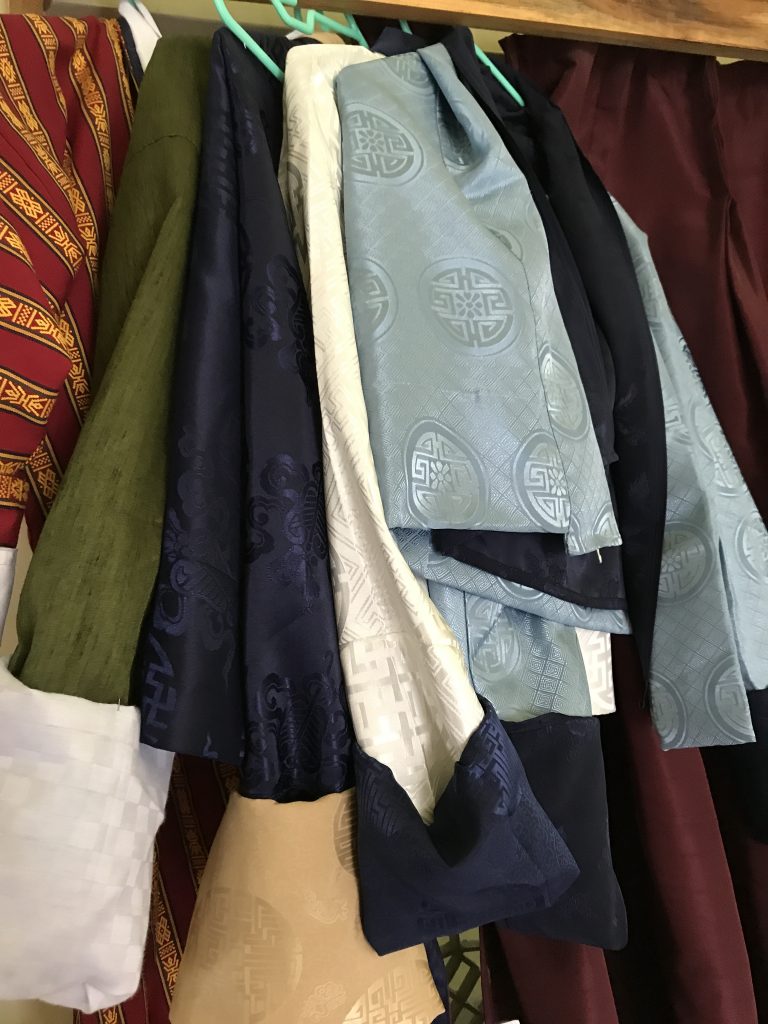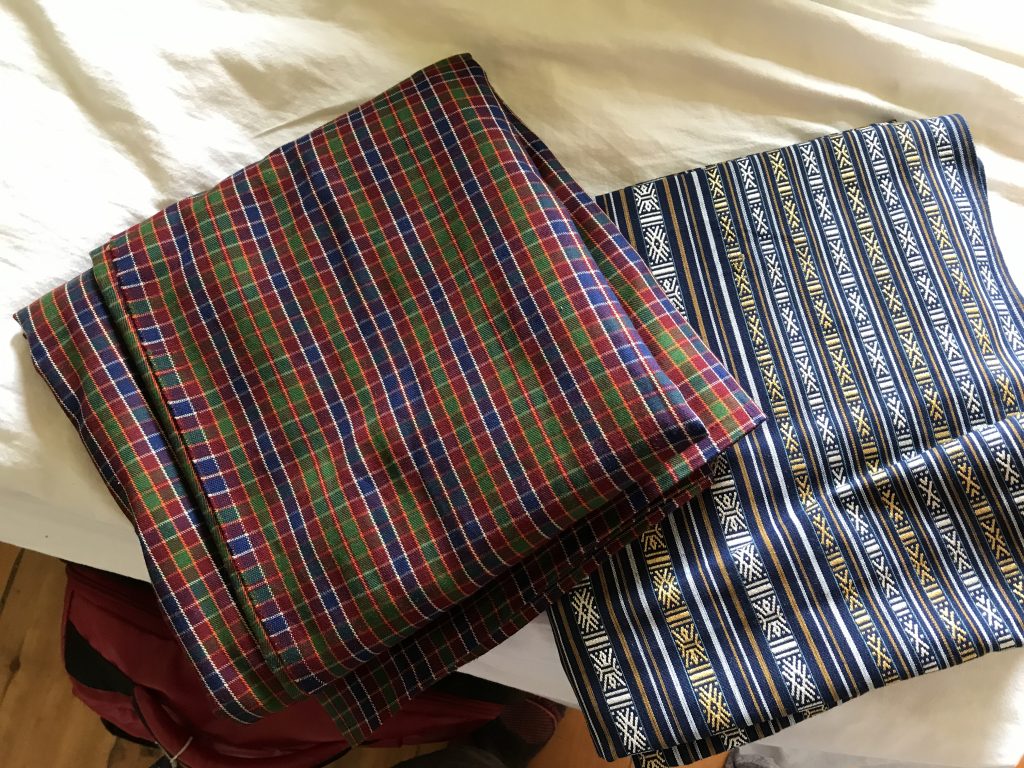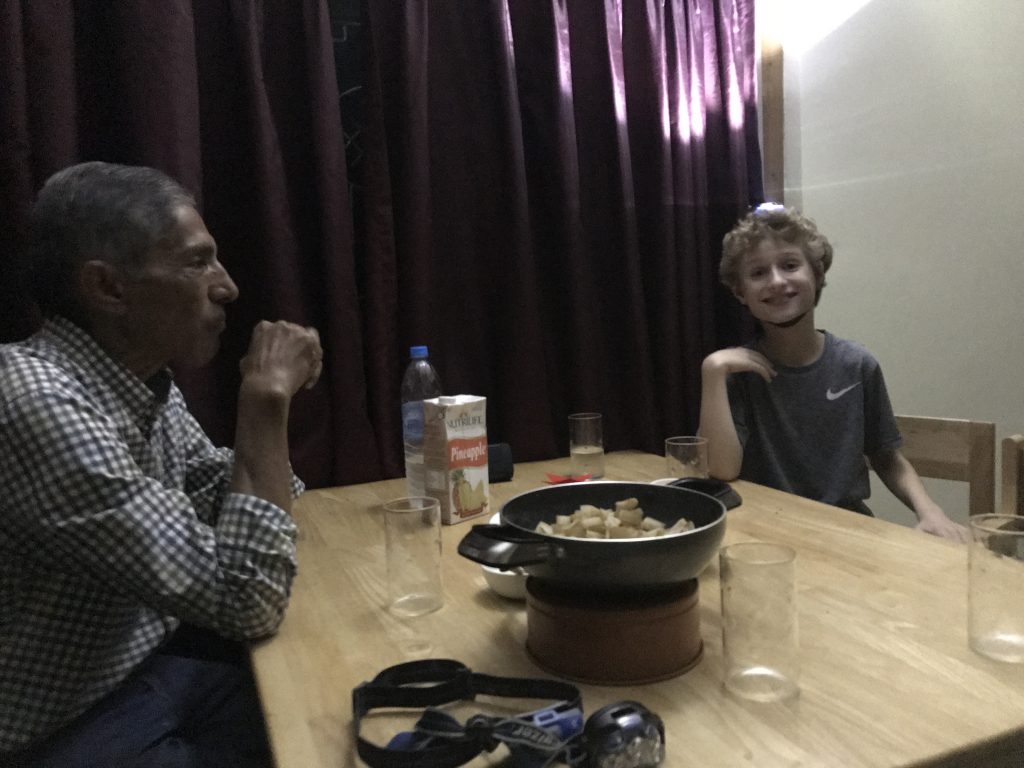Jeremy came home at mid-day and reported that his Dzongkha teacher had beaten a group of students for not doing their homework. Other children had told him earlier that she would beat him, but I swore to him (on the basis of many questions to relevant people before we arrived) that teachers no longer beat students in Bhutanese schools. Phub Namgay had just confirmed the same this week. Someone (Namgay?) had told us that there were social media accounts that would publicly shame any teachers using corporal punishment—at a national level. But the local facts seem to contradict all of this information. So much for my research—and so much for learner-centered teaching, about which so much had been said on all sides the day before.
“She made them line up and hoist up their ghos so that they would feel the beating more, and then she hit them with a piece of bamboo. She seems so nice—not like a teacher who would hit you. Then she saw me looking shocked and she came to explain to me: ‘If I don’t hit them, they won’t do their work. I have to do it.’ If I were taking Dzongkha class, I would probably have been beaten too.
Jeremy made me swear not to talk to the principal or the teacher. But he is strategizing about how to respond if this happens again: he talks about throwing himself in front of his friends to protect them. It’s hard to know how to handle this.
In the meantime, Zoë and I went and bought some more kiras at the JC store, to flesh out what is becoming our shared wardrobe…


Our neighbor Mr Pant came to dinner—and gave us some crucial information (that “atta” is indeed whole wheat flour, despite its white appearance and somewhat different taste). This information will transform our bread-baking efforts. In the middle of supper, the lights go out, and Jeremy puts on a headlight, confirming that he is the light of our lives.

